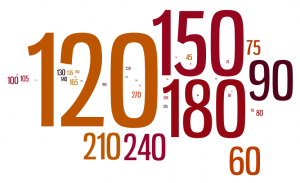To Begin With
My viva was four hours long, and I was stood in front of a chalkboard for the entire duration.
Yeah: I know.
After my PhD, I started work as a skills trainer with postgraduate researchers, and I began delivering sessions on viva preparation. I could tell people about my viva, and about other vivas I had heard about, but I realised very quickly that:
- My viva was not typical, and while it was fine to talk about, it didn’t necessarily help people feel OK;
- I knew a lot about vivas anecdotally, but I didn’t know for sure what the general experience was like.
So I started the Viva Survivors Podcast – by the way, there’s a brand new episode up there today! – I wanted to share stories that would help people feel that the viva was not a terrible thing, and also see that there were things that could be done to prepare for it. By showing a variety of disciplines, postgraduate researchers would see that it was OK – and hopefully see that whatever differences individual vivas have, they also have a lot in common.
About two years later I realised that it was helping, but it wasn’t enough, not by itself.
So I asked seven questions.

